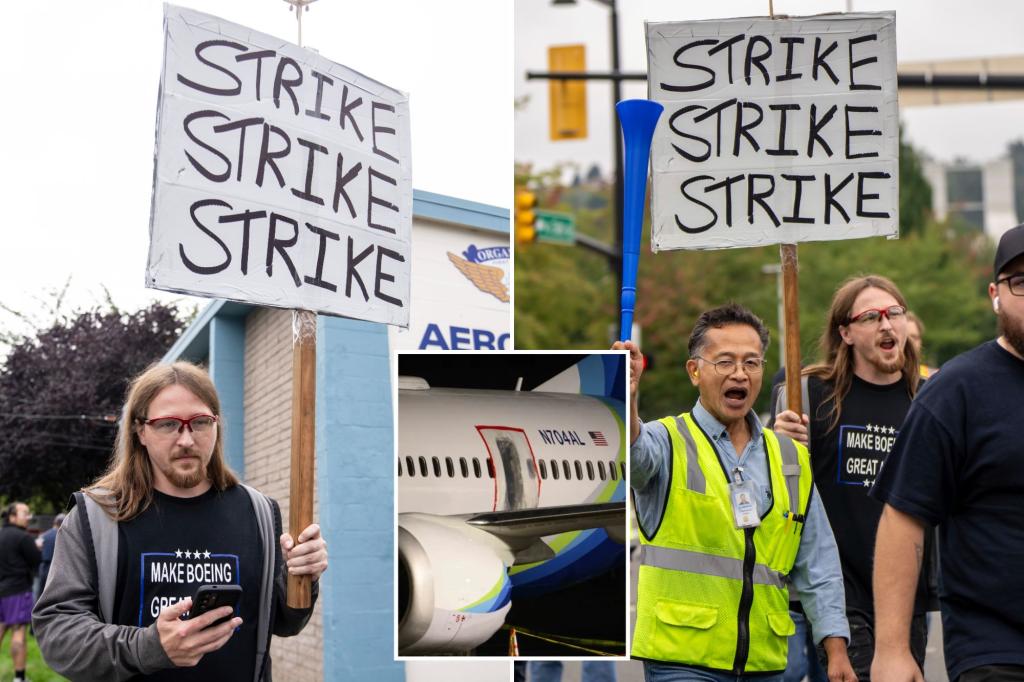Boeing’s US West Coast factory workers voted in favor of a strike, halting production of the planemaker’s popular 737 MAX jet. This decision was made after ongoing issues like output delays and mounting debt. This strike will mark the first time since 2008 that these workers have gone on strike and will begin at midnight Pacific time on Friday. The new CEO, Kelly Ortberg, who was brought in to restore faith in the company, had to deal with this issue after a door panel blew off a 737 MAX jet earlier in the year.
Roughly 30,000 workers in the Seattle and Portland areas were voting on their first full contract in 16 years. The International Association of Machinists and Aerospace Workers set rules that required at least two-thirds of the unionized workers to vote in favor of a strike for it to begin and the contract to be rejected. The workers voted 96% in favor of striking and 94.6% to reject the agreement. The rejected deal included a general wage increase of 25%, a $3,000 signing bonus, and a promise to build Boeing’s next commercial jet in the Seattle area if the program is launched within the four years of the contract.
The IAM leadership recommended accepting the contract, but many workers were not happy with the terms. They had originally demanded a 40% pay rise and were disappointed about losing an annual bonus. CEO Kelly Ortberg urged workers to approve the deal in a letter sent on Wednesday. Despite this, some workers had already begun preparing for picket lines, one carrying a sign that read, “On Strike Against Boeing”. This shows that there was a significant disconnect between the IAM leadership, the workers, and the company’s management, resulting in the rejection of the contract.
The strike will have a significant impact on the production of Boeing’s jets, particularly the 737 MAX, which is one of its strongest-selling models. This further complicates the company’s efforts to catch up on delayed orders and address its growing debt. With production halted, Boeing will need to find a way to negotiate with the striking workers and resolve the issues that led to the rejection of the contract. The success of future negotiations and reaching a new agreement will be crucial for Boeing’s operations moving forward.
The timing of this strike, just after the appointment of a new CEO and amid ongoing challenges for Boeing, adds to the uncertainty surrounding the company’s future. Addressing the concerns of the workers and finding a resolution that is acceptable to both sides will be key to moving forward. The strike highlights the importance of effective communication and negotiation in labor-management relations and the impact that labor actions can have on a company’s operations and reputation. Boeing will need to navigate these challenges carefully to ensure a timely resolution and minimize the impact of production disruptions on its business.


